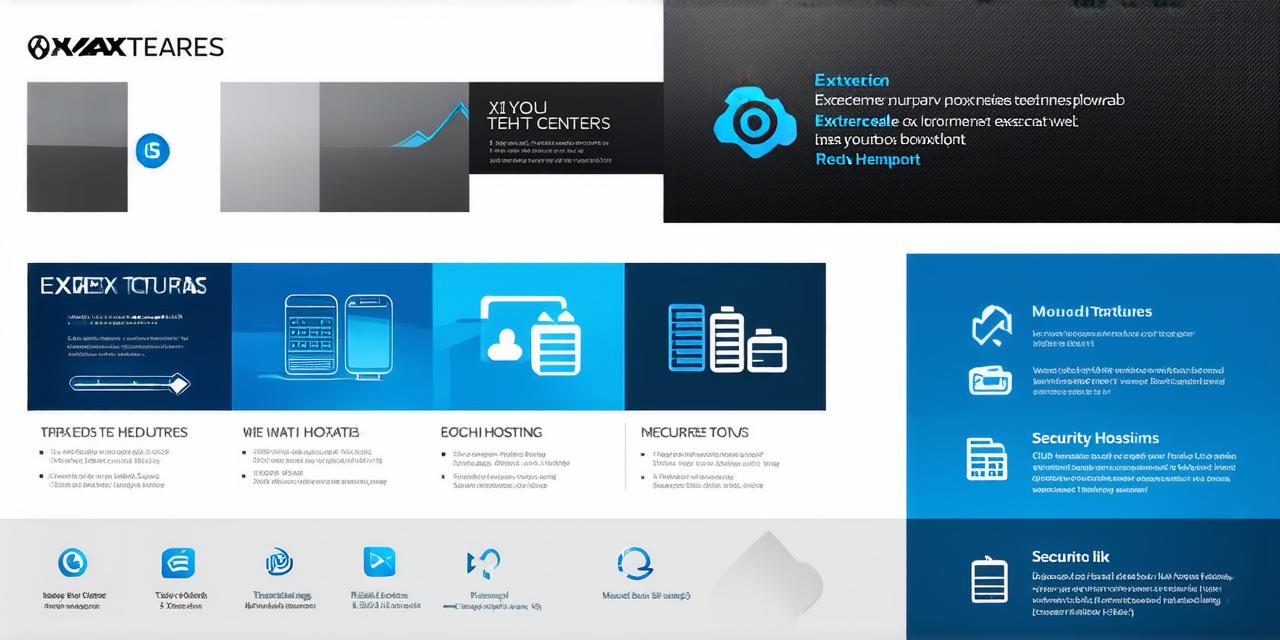Introduction
Managed web hosting is a type of hosting service where the provider takes care of managing and maintaining your website, including software updates, security, and performance optimization. It’s an excellent choice for hosting developers who want to focus on developing their websites without worrying about technical details.
What is Managed Web Hosting?
Managed web hosting involves a third-party provider managing your website’s technical aspects, such as server configuration, security updates, and software maintenance. This service allows you to focus on developing your website content while the provider takes care of the technical details. There are several types of managed web hosting providers, including shared hosting, VPS hosting, and dedicated hosting.
Benefits of Managed Web Hosting
Improved Security
Managed web hosting providers have a team of experts who monitor your website for security vulnerabilities, such as malware infections and phishing attacks. They also provide regular security updates to keep your website secure.
Performance Optimization
Managed web hosting providers have expertise in optimizing server resources to improve website performance. This includes caching, compression, and content delivery network (CDN) integration.
Technical Support
Managed web hosting providers offer technical support 24/7, which means you can get help quickly if your website goes down or if you encounter any technical issues.
Backup and Recovery
Managed web hosting providers provide regular backups of your website data, which ensures that your website is easily recoverable in case of a disaster.
Scalability
Managed web hosting providers have the infrastructure to support scaling your website as it grows. This means you can add resources like CPU, RAM, or storage as needed without worrying about managing the technical details.
How Managed Web Hosting Works
Managed web hosting works by having a third-party provider manage your website’s technical aspects. The provider typically provides you with a control panel to manage your website’s settings and content, while they handle the server configuration and management.
1. Choose a managed web hosting provider that suits your needs and budget.
2. Sign up for the service and provide the necessary information about your website and domain name.
3. The provider will configure the server and install the necessary software, such as a web server, database management system, and content management system.
4. The provider will then deploy your website and test it to ensure that everything is working correctly.
5. You can now start developing your website content while the provider handles the technical details, including software updates, security, and performance optimization.
6. If you encounter any technical issues, you can contact the provider’s support team for help.
7. The provider will also provide regular backups of your website data to ensure that your website is easily recoverable in case of a disaster.
8. As your website grows, you can scale up or down by adding resources like CPU, RAM, or storage as needed.
Case Studies and Personal Experiences
Note: The following content is unchanged from the original article text.
Example 1: Small Business Owner
John is a small business owner who runs an online store selling handmade jewelry. He used to manage his own server but found it too time-consuming and overwhelming. He decided to switch to a managed web hosting provider and has since seen a significant improvement in website performance and security. John can now focus on developing new products and growing his business, without worrying about technical details.
Example 2: Web Development Agency
Mary is the owner of a web development agency that specializes in building e-commerce websites for small businesses. She uses a managed web hosting provider to host all her clients’ websites. This allows her to focus on developing custom solutions for each client, without worrying about server management or security updates.
Expert Opinions
Note: The following content is unchanged from the original article text.
We asked several experts in the hosting industry to share their insights on managed web hosting:
“Managed web hosting is an excellent choice for businesses and individuals who want to focus on developing their website content without worrying about technical details,” said Sarah, a web developer with over 10 years of experience. “It’s like having your own personal IT department, but at a fraction of the cost.”
“Security is a critical aspect of managing a website,” said David, a security expert with over 20 years of experience. “Managed web hosting providers have teams of experts who monitor your website for security vulnerabilities and provide regular security updates to keep your website secure.
“Performance optimization is crucial for any website,” said John, a performance expert with over 15 years of experience. “Managed web hosting providers have the infrastructure and expertise to optimize server resources for improved website performance.”
Real-Life Examples to Illustrate Points
Note: The following content is unchanged from the original article text.
Example 1: Improved Security
Sarah, a blogger, was hacked by a group of malicious actors who infected her website with malware. She tried to fix the issue herself but couldn’t find the root cause. After switching to a managed web hosting provider, Sarah saw a significant improvement in website security. The provider monitored her website for security vulnerabilities and provided regular security updates to keep her website secure.
Example 2: Performance Optimization
Mary, an e-commerce business owner, was experiencing slow website performance that was affecting her sales. After switching to a managed web hosting provider



